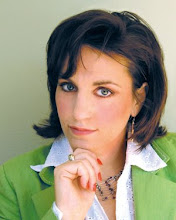Yesterday I went to an all-day workshop in Macon, GA on developing the creative economies of the state. The creative economies defined by the Georgia Tourism Foundation are slightly different from Richard Florida's famous "Rise of the Creative Class" creatives, who include researchers, scientists and the like. The GTF literally means CREATIVES -- dancers, photographers, painters, jewelry-makers, fiber artists and more.
Many of these folks are women, and many also are struggling to make a name for themselves and elevate their work into a full-time business. The workshop I attended is to find and develop trainers to work with creative, mostly rural businesspeople and give them skills they need to succeed. Many rural towns in Georgia and other states were founded on the presence of a particular industry or company, and have fallen on hard times after losing that business. These folks don't want to abandon their town or homes, so creating an alternative business infrastructure is vital. The workshop featured presentations on "discovering your heritage" for these towns, and featured towns such as Savannah as success stories. It can happen if enough people become committed and band together to effect change.
I sat next to a lovely fiber artist named Carla Powell in the session. If you don't know what a "fiber artist" is, it's someone who works with and creates art with textiles. She is PHENOMENAL. Go to www.carlapowellstudio.com and see if I'm lying. More on textile artists in a minute...the great deal about sitting with Carla is that she was there to offer creatives training in making a website to promote themselves and their art on blogspot. HELLO--where is my new blog? She inspired me to sit down and take care of my OWN business, finally--something I've not focused on nearly enough lately because I've been working a lot.
So the trip was worth it, the creative economies project is DEFINITELY worthwhile, and I'm going to post some links for you to follow to find out more about the creatives in Georgia and, if you're a creative or microbusiness, there'll also be some links on resources you can access for help.
Back to fiber artists--I've learned there isn't a big fiber artists community in Georgia, or at least Atlanta. I learned this from Leisa Rich, an AMAZING fiber artist and also my teacher. I've been taking classes from Leisa for a couple of months at Callanwolde here in Atlanta (www.callanwolde.org)--an arts center where you can take classes on anything from dance and pottery to drawing and acting. We're very blessed to have that resource here. Leisa is so busy working as a teacher, mentor and artist that I wanted to give her a shout-out and direct y'all to her website, www.monaleisa.com. She does custom commissioned art pieces and has many works in traveling and permanent exhibits. Check her out!

1 comment:
Way to go! Nice job on your site. I also appreciate the plug for me and all fiber artists:-)
Post a Comment